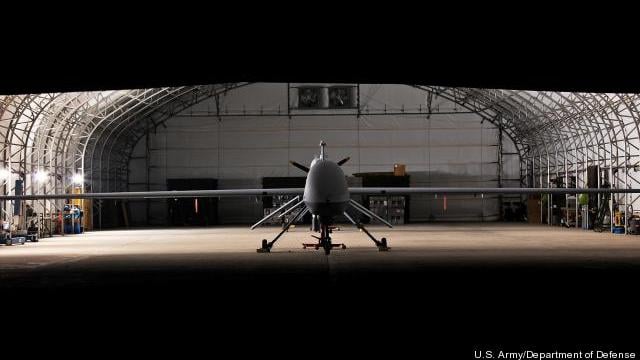Budget Cuts Force Reboot Of Army UAS Plan
Posted on
 Washington: Falling budgets will force the Army to boost adoption of unmanned systems and to look more closely at the ethical and moral implications of killing people using autonomous systems, two senior Army officers said Tuesday.
Washington: Falling budgets will force the Army to boost adoption of unmanned systems and to look more closely at the ethical and moral implications of killing people using autonomous systems, two senior Army officers said Tuesday.
Although the Army has been working with unmanned programs for decades, it still is not moving as fast as it should, the officers told the opening session of the AUVSI conference here.
Lt. Gen. Rick Lynch said the Army’s mission of defending the nation will not change, but if the means to do that are reduced, “we have to modify our ways.” Lynch saw three primary uses of unmanned systems – to improve surveillance, to reduce the workload and to improve survivability on the battlefield.
Currently commanding general of the Army’s Installation Command, Lynch said he had unmanned aircraft while he commanded infantry forces during the invasion of Iraq, but lacked the “persistent stare” needed to stop insurgents from planting deadly IEDs. “If we are going to use unmanned technology to improve surveillance, we need to focus on persistent stare,” he said.
Lynch said use of robotics to reduce the workload will be necessary both on the battlefield and in operating the Army’s installations, which are will be run with fewer people. He proposed systems to provide security and to move things on bases and on the battlefield.
But in a separate session, former Army aviation chief retired Maj. Gen. Rudolph Ostovich said the service has never been able to find manpower savings via UAS. However, the Army and the other services will be forced to find those savings, as the looming budget crunch nears.
Recalling the soldiers who died under his command, Lynch called for unmanned vehicles to do route clearance to help find IEDs and to reduce the number of manned trucks on supply convoys. He also proposed unmanned tanks that could “mirror” the actions of manned vehicles to cut in half the number of soldiers exposed to combat.
Maj. Gen. Walter Davis, deputy director of the Army’s Capabilities Integration Center, also supported development of more armed robots, but said that would require the nation to address the moral implications of lethal robots.
“Unmanned systems will play a critical role in (Army) modernization,” Davis said and proposed a new organization that would serves as a “test bed” to help move unmanned technology into the hands of soldiers faster. He did not explain where the “test bed” organization would be located.
Subscribe to our newsletter
Promotions, new products and sales. Directly to your inbox.
